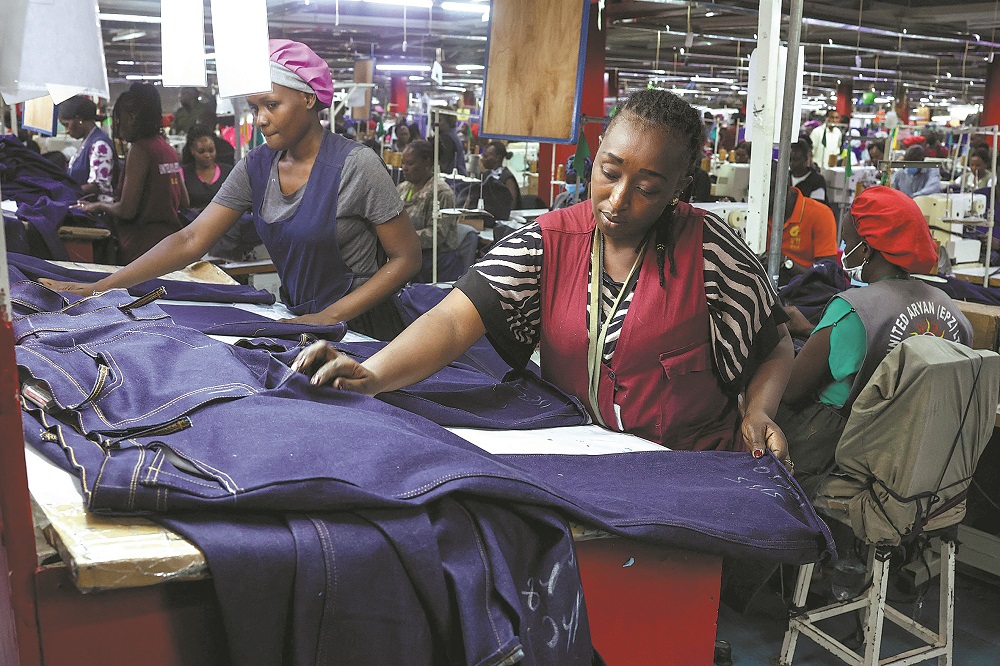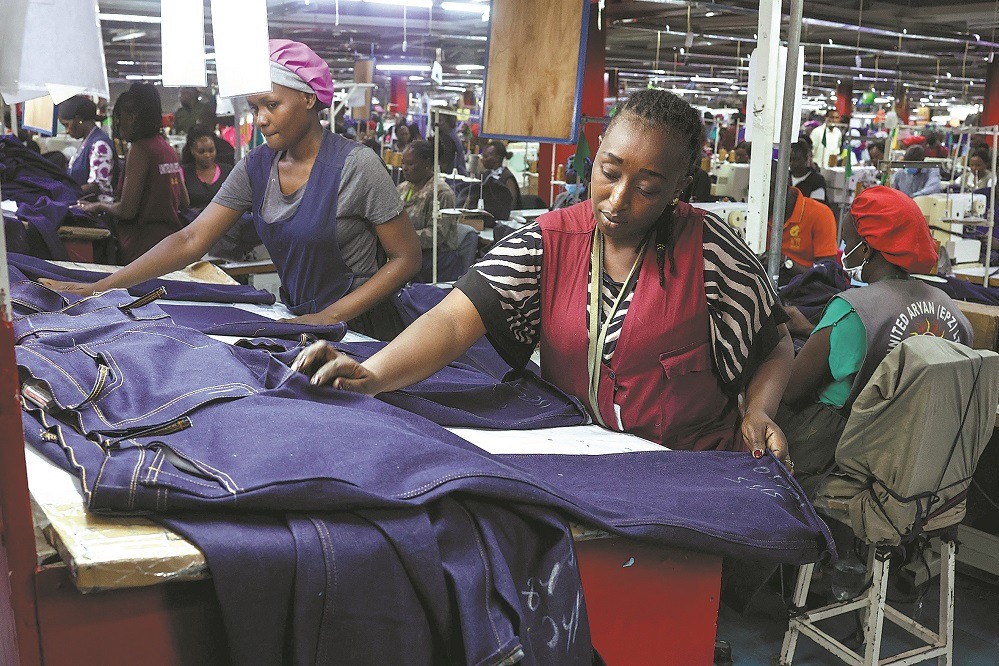
On February 4th, workers will perform high-quality checks at a factory in Nairobi, Kenya. The factory may be in East Africa, but jeans rolling from the production line are for US stores like Walmart. Simon Meina/AFP
The World Trade Organization reports that Africa's trade outlook is bleak by increasing trade policy uncertainty as it faces an increase in global protectionism and is threatened with new tariffs and uncertainties in trade policy from the United States.
In its report, Global Trade Outlook and Statistics, the WTO warns that a surge in tariffs and other restrictive measures (particularly from the US) has downgraded its forecasts for global commodity trade, and that ripple effects, including Africa, have collided with developing economies. The report now forecasts a contraction of 0.2% of global trade volume this year. This has fallen sharply from the initially expected growth of nearly 3%.
“The outlook for 2025 is being restrained for Africa,” the report states, with continental services exports projected to shrink by 1.6%, reversing early expectations of 1.8% growth. While a rebound is projected for 2026, service exports are projected to rise by 5.3%, the WTO warned that the short-term risk remains rising.
The US decision to suspend certain mutual trade arrangements while imposing new tariffs has increased uncertainty across international markets and weakened trade flows with developing countries. For Africa, this relies heavily on the external markets of goods, services and goods, but the impact is already felt.
“The digitally provided tariffs on services and technical support have disrupted the trade patterns African companies have just begun to tap,” said Socrates Majoun, an economist at the University of Nairobi.
“In the 1990s, about 13% of Africa's exports were sent to the US. That figure would fall to 5% between 2020 and 2022, and could drop even further with these new barriers.”
Despite the wider slowdown, some sectors have demonstrated resilience. Africa's travel services exports rose 9% last year, supported by a revival of tourism in countries such as Namibia, Tanzania and Uganda. The report celebrates improved connectivity, regional marketing and rising demand for recovery after the pandemic.
Meanwhile, digitally delivered services from Africa rose 13% more than twice the global average, indicating an expansion of the continent's foothold in the remote consulting, IT and creative industries. Africa's global digital services export share remains modest at 0.9%, but the WTO is paying attention to a steady upward trend.
Exposed vulnerabilities
Still, economists warn that such profits may not be sufficient to offset losses in the more traditional sector. Overall, African goods exports expanded at less than 2% in 2024, revealing regional vulnerabilities to commodity price shifts and protectionist headwinds.
“The impact of recent trade policy changes is very different across regions,” the WTO said.
“The developed economies absorbed much of the turbulence, but there has been a sharp decline in transport receipts and services, particularly in developing regions such as Africa, South and Central America.”
The International Monetary Fund reflects similar concerns in its regional economic outlook for April 2025, downgrading Africa's GDP growth forecast to 3.9%, citing global uncertainty and rising trade volatility.
“The sudden change in global outlook has disrupted the momentum for growth in Africa,” the IMF said in a statement.
“Trade disruption, tightening funding conditions and geopolitical fragmentation have exacerbated the risks in the region.”
Before the new tariffs were introduced, African services exports to the US were on a modest but promising upward trend. Between 2015 and 2020, exports of digital distribution services such as customer support, IT consulting and design services experienced an average annual growth rate of around 9%, according to data from the African Export Transport Bank.
“The digital revolution was just beginning to level the playing field. These new tariffs have weakened its momentum and narrowed access to one of Africa's most profitable services markets,” Majune said.


